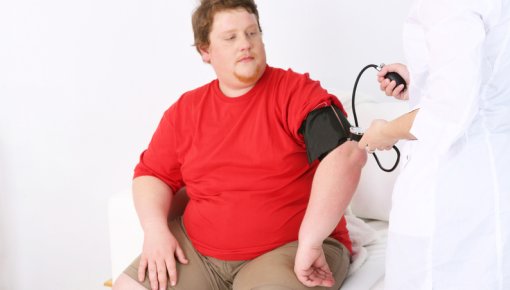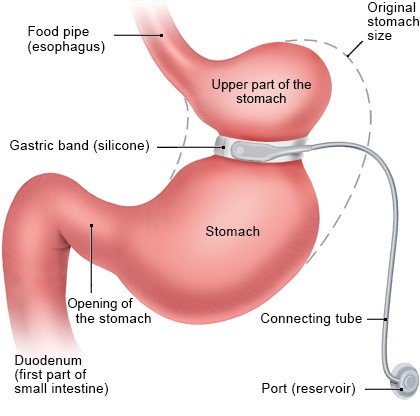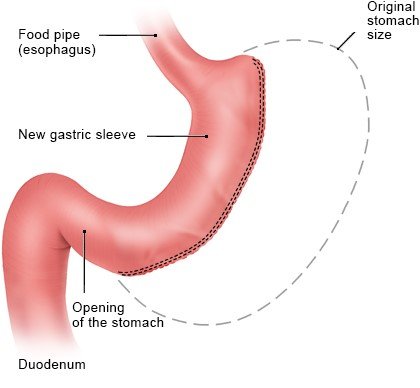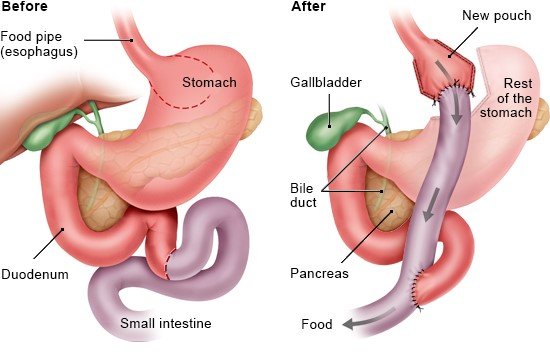Weight loss surgery

Weight loss surgery can help obese people lose a lot of weight and improve their health. But there’s a risk of complications, some of which can be serious. You also have to make a lot of changes after the surgery, in order to prevent digestive problems and malnutrition. So it's important to have good after-surgery care too.
Surgery (such as gastric sleeve surgery) may be an option for people who are very obese or have accompanying conditions like diabetes. The goal of surgery may be to lose a lot of weight quickly or to treat metabolic disorders like diabetes. Weight loss surgery is also called bariatric surgery (from the Greek word “baros,” which means weight). If the aim of the surgery is to treat a metabolic disorder, it is called metabolic surgery.
Removing body fat (liposuction) isn't a treatment option for obesity because it hardly affects the intake and burning of calories, and it's associated with risks. It also doesn't have any proven health benefits.



